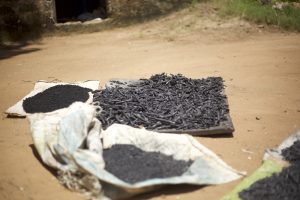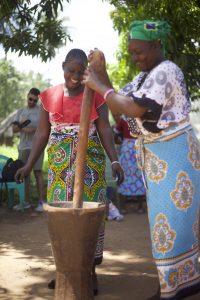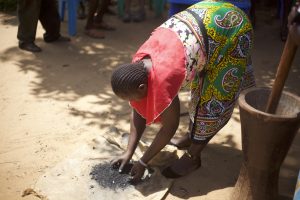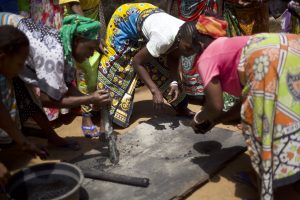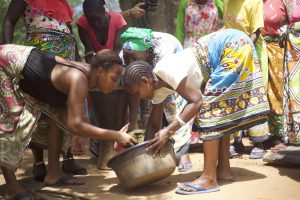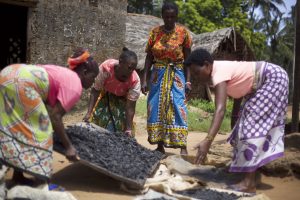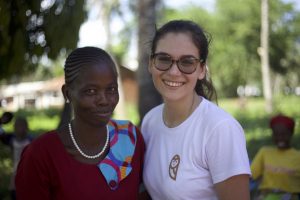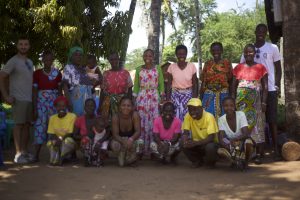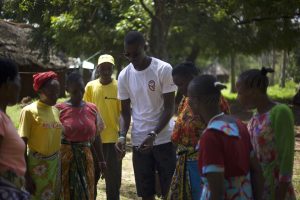Two-day workshop: how is biochar produced?
15 Kadzinuni women took part in the workshop to show CR Hope Foundation volunteers the process of producing biochar.
“They explained the labour and skill that goes into the making of biochar. After two days of trying the process firsthand, we can confirm that it is not a task for the faint-of-heart!”
The process begins with gathering agricultural waste, such as coconut shells, commonly found in abundance in the coastal regions of Kenya. After the waste is gathered and brought back to the village, it is put into a double-barreled furnace where it goes through the process of pyrolysis with little or no access to oxygen. The remains of the carbonized waste are then beaten and crushed into fine powder. This is then mixed with the cassava porridge and clay paste to produce a raw form of the future biochar. This mixture is then formed into briquettes, which are placed under the sun to dry out for two days. After this period has lapsed, the briquettes are ready to use as an alternative green energy source to wood. Biochar releases 50% less greenhouse gasses than conventional charcoal burning.
Although the process is straightforward, it involves extensive manual labour to yield commercially viable amounts of biochar. This is where CR Hope Foundation is focusing their efforts.
What does the future look like for biochar in Kadzinuni?
CR Hope Foundation is fundraising to purchase machinery and train the women involved with the project in its usage to relieve the physical burden involved in the production process. By industrialising the method in which biochar is produced it will also improve production efficiency allowing the local community, in time, to expand their business and begin selling biochar further afield.
Is biochar really worth it?
Not only does biochar have a clear advantage over the conventional sources of energy when it comes to the environmental impact, it also provides an unprecedented opportunity for local women to earn supplemental incomes. In the first eight months of the project’s operationoperating, the women involved have been able to generate an income, enabling them to purchase better clothing, pay children’s school fees and save money. Importantly, they continue to develop their business skills, network with neighbouring communities and set an example for the next generation of females – an outcome that cannot be overestimated.
Find out more about meeting your CSR objectives by becoming involved with CR Hope Foundation by emailing: info@crhopefoundation.org.
Acuity is privileged to support CR Hope Foundation’s inspirational team of international volunteers and to play a small part in the changes that CR Hope are making to lives through its in-country projects.
